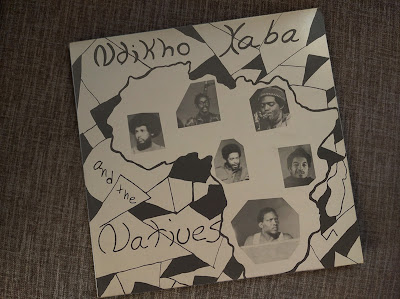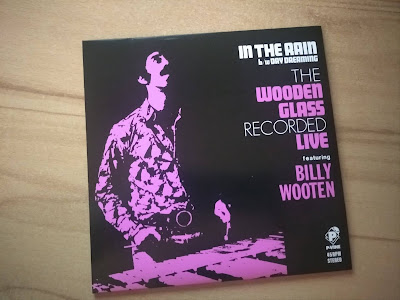Αναρτήσεις
Προβολή αναρτήσεων από 2022
Various – Mainstream Funk 2022 (Wewantsounds)
- Λήψη συνδέσμου
- X
- Ηλεκτρονικό ταχυδρομείο
- Άλλες εφαρμογές
Harold Johnson Sextet – House On Elm Street 1967 (H.M.E)
- Λήψη συνδέσμου
- X
- Ηλεκτρονικό ταχυδρομείο
- Άλλες εφαρμογές
My Favorite Album Of The Year
- Λήψη συνδέσμου
- X
- Ηλεκτρονικό ταχυδρομείο
- Άλλες εφαρμογές
Jiro Inagaki & Soul Media – Woodstock Generation 1970 (Union Records)
- Λήψη συνδέσμου
- X
- Ηλεκτρονικό ταχυδρομείο
- Άλλες εφαρμογές
Dorothy Ashby – The Rubaiyat Of Dorothy Ashby 1970 (Cadet)
- Λήψη συνδέσμου
- X
- Ηλεκτρονικό ταχυδρομείο
- Άλλες εφαρμογές
The Dudley Moore Trio – The Dudley Moore Trio 1969 (Decca)
- Λήψη συνδέσμου
- X
- Ηλεκτρονικό ταχυδρομείο
- Άλλες εφαρμογές
Real Ax Band – Move Your Ass In Time 1977 (April)
- Λήψη συνδέσμου
- X
- Ηλεκτρονικό ταχυδρομείο
- Άλλες εφαρμογές
Georg Riedel - Riedaiglia 1967 (Sveriges Radio)
- Λήψη συνδέσμου
- X
- Ηλεκτρονικό ταχυδρομείο
- Άλλες εφαρμογές
Bonnie Dobson – Good Morning Rain 1970 (RCA)
- Λήψη συνδέσμου
- X
- Ηλεκτρονικό ταχυδρομείο
- Άλλες εφαρμογές
Ron Eliran – Double Life (Recorded Live At Jericho Club L.A.) 1974 (Michael Records)
- Λήψη συνδέσμου
- X
- Ηλεκτρονικό ταχυδρομείο
- Άλλες εφαρμογές
Gal Costa - Gal Costa 1969 (Philips)
- Λήψη συνδέσμου
- X
- Ηλεκτρονικό ταχυδρομείο
- Άλλες εφαρμογές
Lexia - Lexia 1972 (MGM)
- Λήψη συνδέσμου
- X
- Ηλεκτρονικό ταχυδρομείο
- Άλλες εφαρμογές
Sahib Shihab – Sahib's Jazz Party 1964 (Debut Records)
- Λήψη συνδέσμου
- X
- Ηλεκτρονικό ταχυδρομείο
- Άλλες εφαρμογές
Placebo – Placebo 1974 (Harvest)
- Λήψη συνδέσμου
- X
- Ηλεκτρονικό ταχυδρομείο
- Άλλες εφαρμογές
All dayer : Get on the board with our friends 17.00 - 23.00
- Λήψη συνδέσμου
- X
- Ηλεκτρονικό ταχυδρομείο
- Άλλες εφαρμογές
Soul City Orchestra - Meal Ticket 1977 (Rouge)
- Λήψη συνδέσμου
- X
- Ηλεκτρονικό ταχυδρομείο
- Άλλες εφαρμογές
Όμορφα Ποιήματα - Ένας Περαστικός Ποιητής
- Λήψη συνδέσμου
- X
- Ηλεκτρονικό ταχυδρομείο
- Άλλες εφαρμογές
Ted Coleman Band – Taking Care Of Business 1980 (JSR Records)
- Λήψη συνδέσμου
- X
- Ηλεκτρονικό ταχυδρομείο
- Άλλες εφαρμογές
Ξαρχάκος + Κόκοτας – Ξαρχάκος + Κόκοτας 1970 (Columbia)
- Λήψη συνδέσμου
- X
- Ηλεκτρονικό ταχυδρομείο
- Άλλες εφαρμογές
The Wayne Powell Octet – Plays Hallucination 1965 (Lo-Lace Records)
- Λήψη συνδέσμου
- X
- Ηλεκτρονικό ταχυδρομείο
- Άλλες εφαρμογές
Jean Morlier – Musique Dessinée (Comic Strip Music)1970 (Disques Bagatelle)
- Λήψη συνδέσμου
- X
- Ηλεκτρονικό ταχυδρομείο
- Άλλες εφαρμογές
The 3 Pieces - Vibes Of Truth 1975 (Fantasy)
- Λήψη συνδέσμου
- X
- Ηλεκτρονικό ταχυδρομείο
- Άλλες εφαρμογές
Dizzy Gillespie Featuring James Moody - The Real Thing 1970 (Perception Records)
- Λήψη συνδέσμου
- X
- Ηλεκτρονικό ταχυδρομείο
- Άλλες εφαρμογές
Ajda Pekkan - Fecri Ebcioğlu Sunar: Ajda Pekkan 1969 (Regal)
- Λήψη συνδέσμου
- X
- Ηλεκτρονικό ταχυδρομείο
- Άλλες εφαρμογές
Witch - Lazy Bones 1975 (Zambezi)
- Λήψη συνδέσμου
- X
- Ηλεκτρονικό ταχυδρομείο
- Άλλες εφαρμογές
Susan Christie – Paint A Lady 2006 (Finders Keepers Records)
- Λήψη συνδέσμου
- X
- Ηλεκτρονικό ταχυδρομείο
- Άλλες εφαρμογές
Chicago – Chicago III 1971 (Columbia)
- Λήψη συνδέσμου
- X
- Ηλεκτρονικό ταχυδρομείο
- Άλλες εφαρμογές
Ndikho Xaba And The Natives - Ndikho Xaba And The Natives 1971 (Trilyte)
- Λήψη συνδέσμου
- X
- Ηλεκτρονικό ταχυδρομείο
- Άλλες εφαρμογές
Chico Hamilton Introducing Larry Coryell - The Dealer 1966 (Impulse!)
- Λήψη συνδέσμου
- X
- Ηλεκτρονικό ταχυδρομείο
- Άλλες εφαρμογές
The Wooden Glass Featuring Billy Wooten - In The Rain / Day Dreaming 2022 (P-Vine Records)
- Λήψη συνδέσμου
- X
- Ηλεκτρονικό ταχυδρομείο
- Άλλες εφαρμογές
John Fitch & Associates – Romantic Attitude 1969 (Beacon)
- Λήψη συνδέσμου
- X
- Ηλεκτρονικό ταχυδρομείο
- Άλλες εφαρμογές
Anadol - Uzun Havalar 2019 (Kinship)
- Λήψη συνδέσμου
- X
- Ηλεκτρονικό ταχυδρομείο
- Άλλες εφαρμογές
Dave Bixby – Ode To Quetzalcoatl 1970 (Not On Label (Dave Bixby Self-released)
- Λήψη συνδέσμου
- X
- Ηλεκτρονικό ταχυδρομείο
- Άλλες εφαρμογές
Mankunku Quartet – Yakhal' Inkomo 1968 (World Record Co.)
- Λήψη συνδέσμου
- X
- Ηλεκτρονικό ταχυδρομείο
- Άλλες εφαρμογές
Margo Guryan – Take A Picture 1968 (Bell)
- Λήψη συνδέσμου
- X
- Ηλεκτρονικό ταχυδρομείο
- Άλλες εφαρμογές
45 rpm (city soul,latin jazz & brazillian licks for summer lovers)
- Λήψη συνδέσμου
- X
- Ηλεκτρονικό ταχυδρομείο
- Άλλες εφαρμογές
The Nineteenth Whole – Smilin 1972 (Eastbound Records)
- Λήψη συνδέσμου
- X
- Ηλεκτρονικό ταχυδρομείο
- Άλλες εφαρμογές
Frank And The Top Ten - Meet The Gang 1971 (Golden Ring Records)
- Λήψη συνδέσμου
- X
- Ηλεκτρονικό ταχυδρομείο
- Άλλες εφαρμογές
Barbara & Ernie – Prelude To... 1971 (Cotillion)
- Λήψη συνδέσμου
- X
- Ηλεκτρονικό ταχυδρομείο
- Άλλες εφαρμογές
Tomorrow's People – Open Soul 1976 (Stage Productions)
- Λήψη συνδέσμου
- X
- Ηλεκτρονικό ταχυδρομείο
- Άλλες εφαρμογές
George Otsuka Quintet – Sea Breeze 1971 (Union Records)
- Λήψη συνδέσμου
- X
- Ηλεκτρονικό ταχυδρομείο
- Άλλες εφαρμογές
José Mauro - Obnoxius 19870 (Quartin)
- Λήψη συνδέσμου
- X
- Ηλεκτρονικό ταχυδρομείο
- Άλλες εφαρμογές
Big Jullien And His All Star – Riviera Sound N°1 1969 (Major Minor)
- Λήψη συνδέσμου
- X
- Ηλεκτρονικό ταχυδρομείο
- Άλλες εφαρμογές
John Dunne & Thanasis Zlatanos 1978 (Unreleased Tracks)
- Λήψη συνδέσμου
- X
- Ηλεκτρονικό ταχυδρομείο
- Άλλες εφαρμογές












































